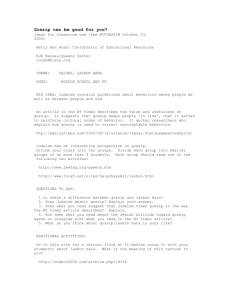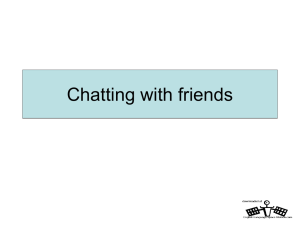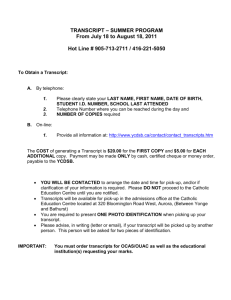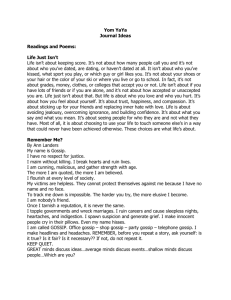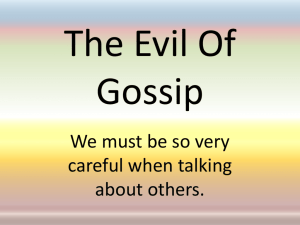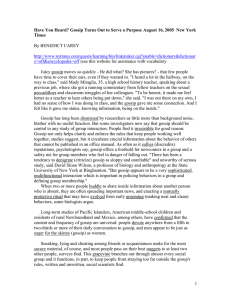More on how we learn and perform our culture
advertisement
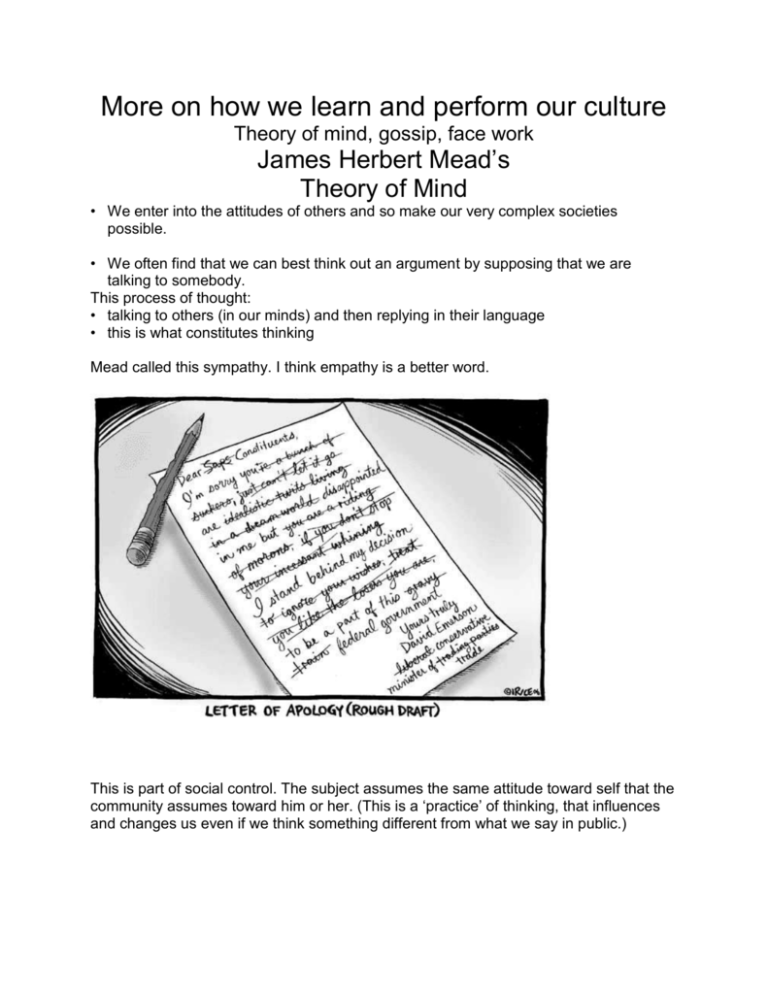
More on how we learn and perform our culture Theory of mind, gossip, face work James Herbert Mead’s Theory of Mind • We enter into the attitudes of others and so make our very complex societies possible. • We often find that we can best think out an argument by supposing that we are talking to somebody. This process of thought: • talking to others (in our minds) and then replying in their language • this is what constitutes thinking Mead called this sympathy. I think empathy is a better word. This is part of social control. The subject assumes the same attitude toward self that the community assumes toward him or her. (This is a ‘practice’ of thinking, that influences and changes us even if we think something different from what we say in public.) Gossip • What is it? • Reasons for gossip? • Results of gossip? Gossip as a form of othering • to build group identity based on descriptions of people the group has decided it is not • to participate in boundary making based on deciding who belongs and who doesn’t • for example, who is masculine and who is not, who is feminine and who is not Performing gender identity; questions about men’s gossip • In their conversation, what was being defined and performed as masculinity? • How do women and the invention of ‘gays’ become aides for defining masculinity in conversations such as the one in this reading? • How might men be judged if they failed to perform and discuss masculinity in the expected ways? In other words, what if they did not participate in the conversation appropriately? • How might females be socialized for not being appropriately feminine from the point of view of males who are constructing masculinity (and femininity) through gossip? Men and women perform and re-enforce gender constructions through gossip The average man is as big a gossip as his female counterpart, new research has claimed. A British study says that men are as interested in gossip as women are, although for both sexes girls are the favorite topic of conversation. University of Leicester Dr Charlotte De Backer, June 2007. Gossip as part of power dynamics James Scott Public transcript Public rituals of communications between those who are dominant and subordinate (employee/boss, citizen/bureaucrat, slave/master) Subordinate: may portray a deference and consent that is possibly only a tactic. Power holder: produces a performance of mastery and command. The greater the power difference, the more ritualistic and stereotyped the public transcript. The more menacing the power, the thicker the public mask. Hidden transcript Consists of those offstage speeches, gestures, and practices that confirm, contradict, or resist what appears to be the public transcript. The hidden transcript is performed and produced for a different audience than that of the public transcript. It is usually a performance between those who share subordination. Power holders also have their own hidden transcripts. Hidden transcripts usually remain hidden. Power-holder choices when the hidden transcript is made public Power holders: • Can share power 2. Can ignore the challenge 3. Can discredit the challenger (crazy, delinquent, dangerous, etc.) 4. Can destroy the challenger



